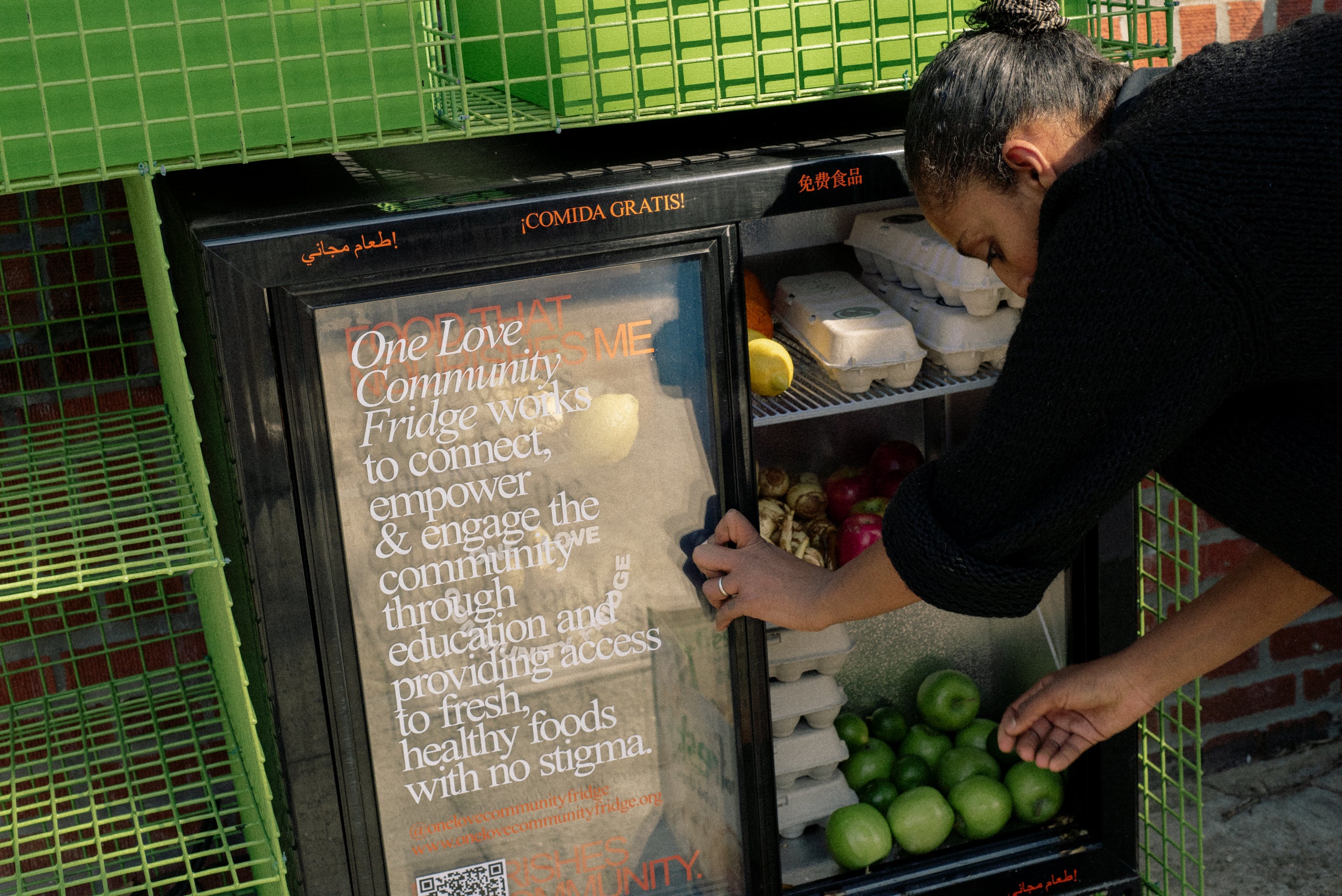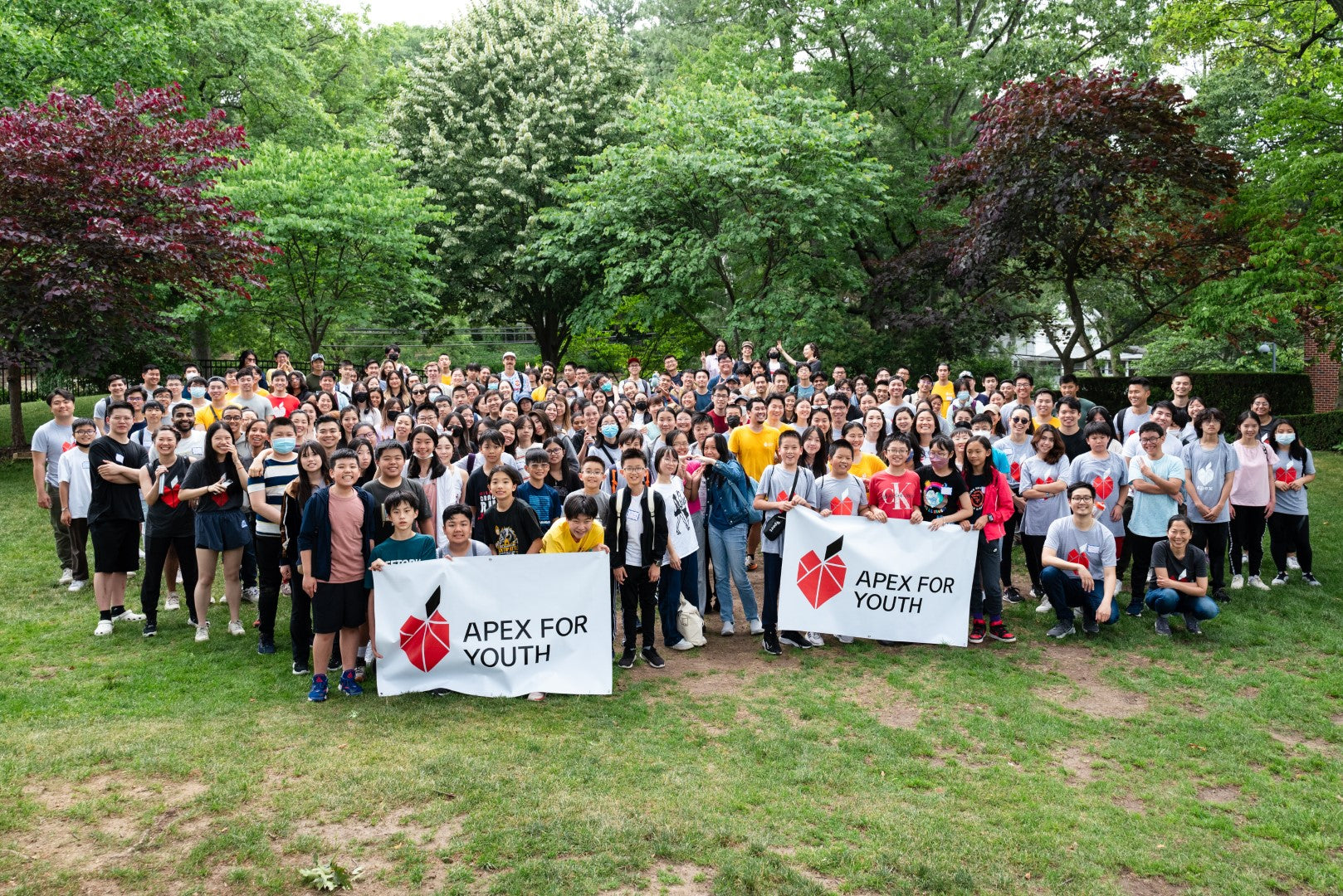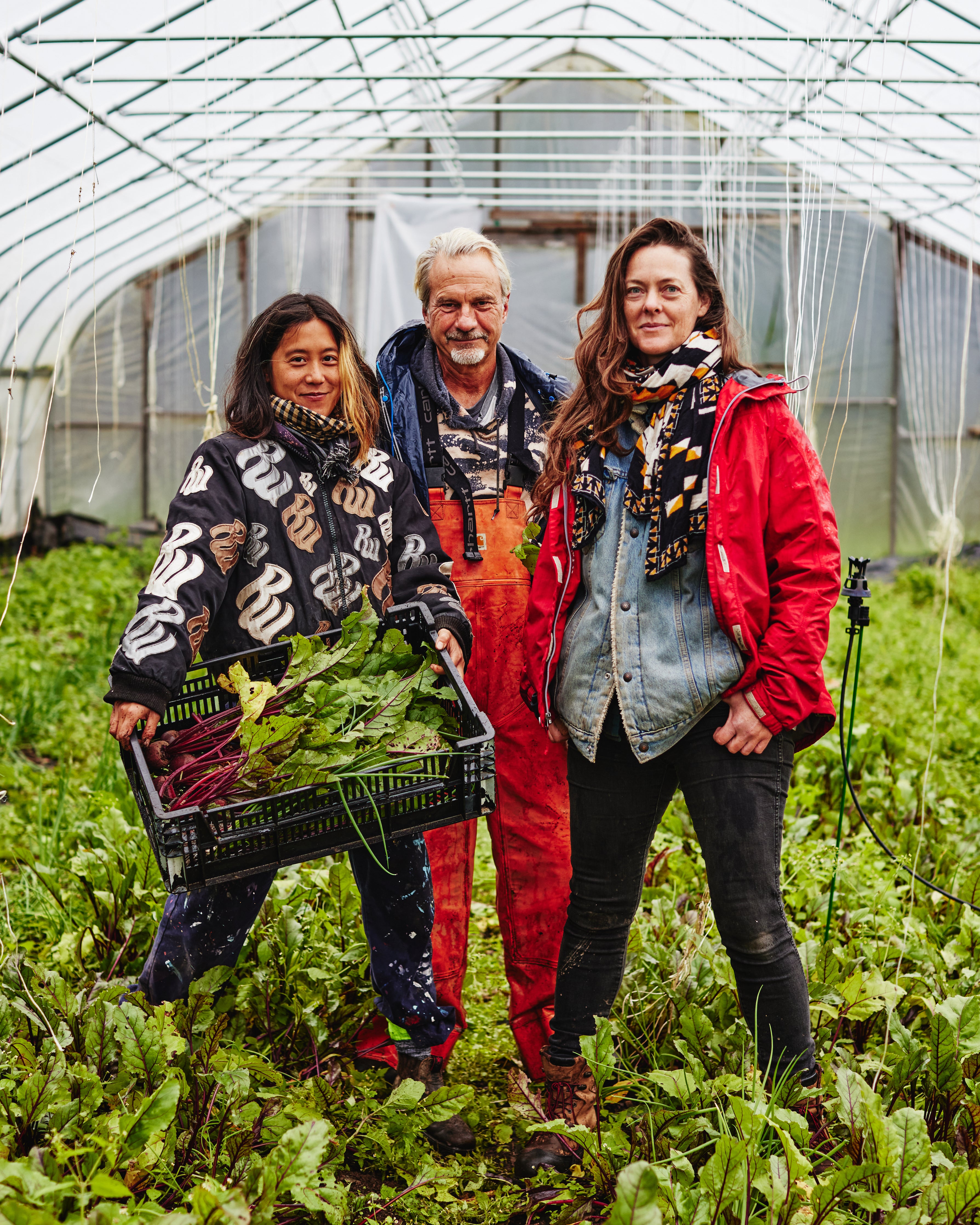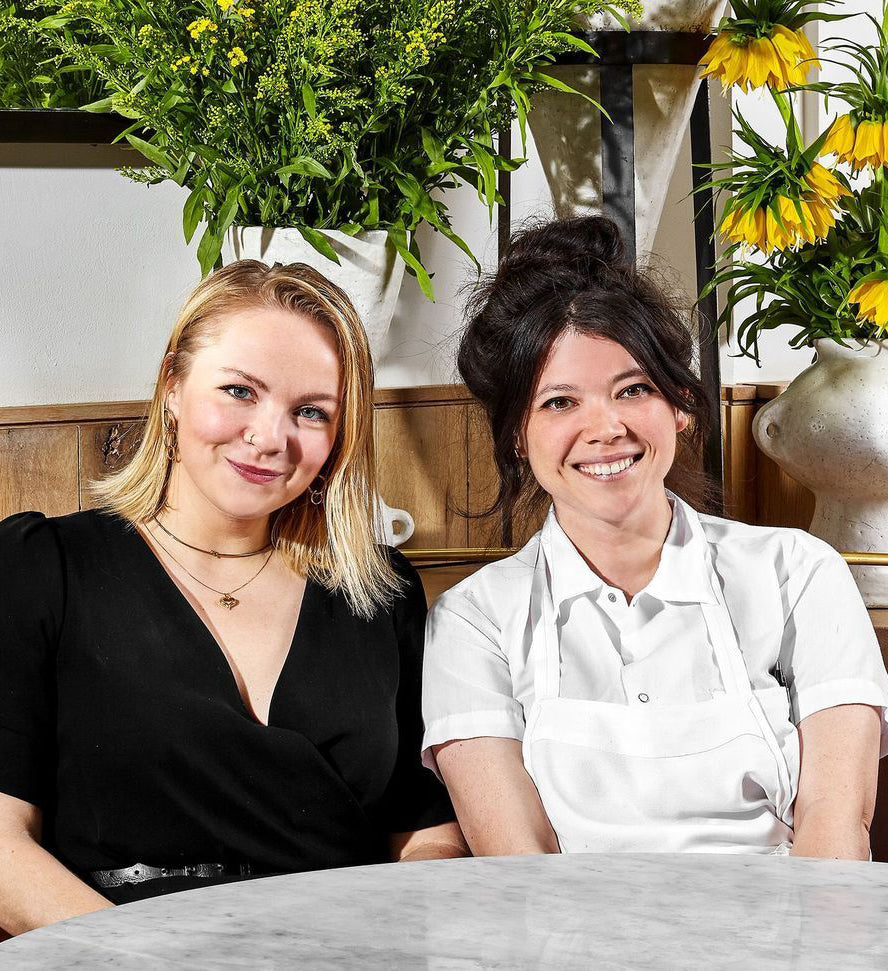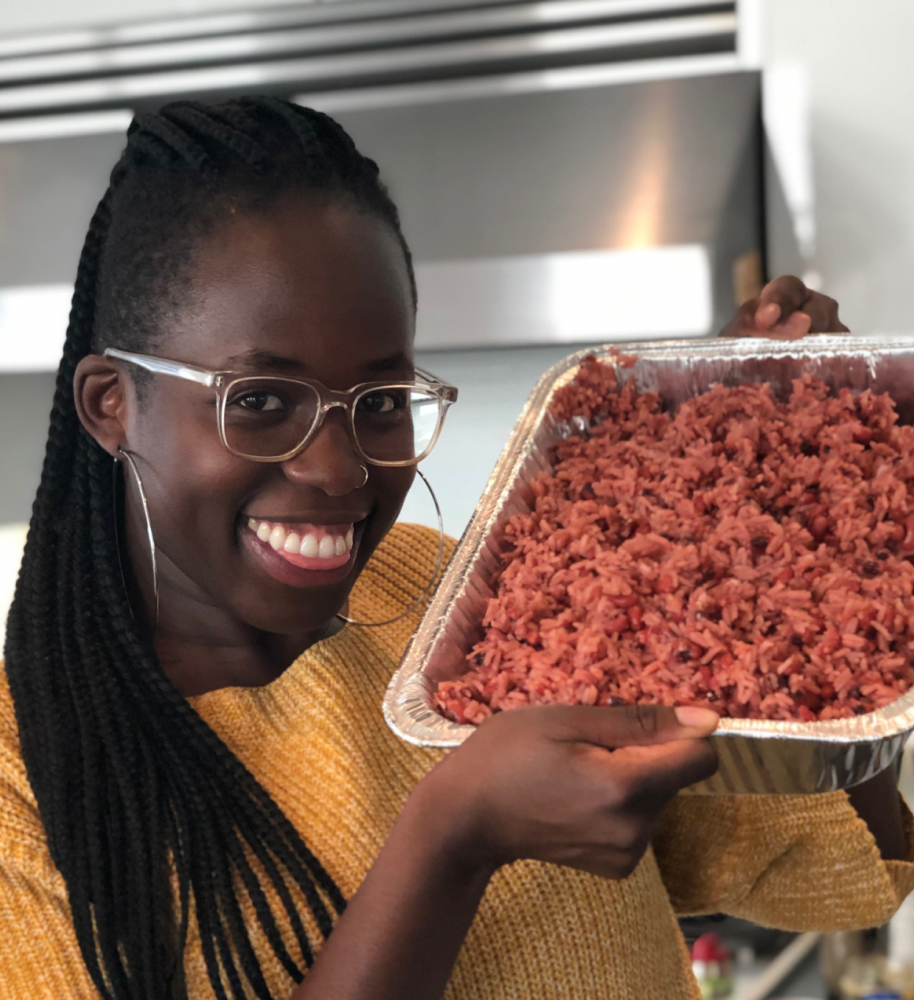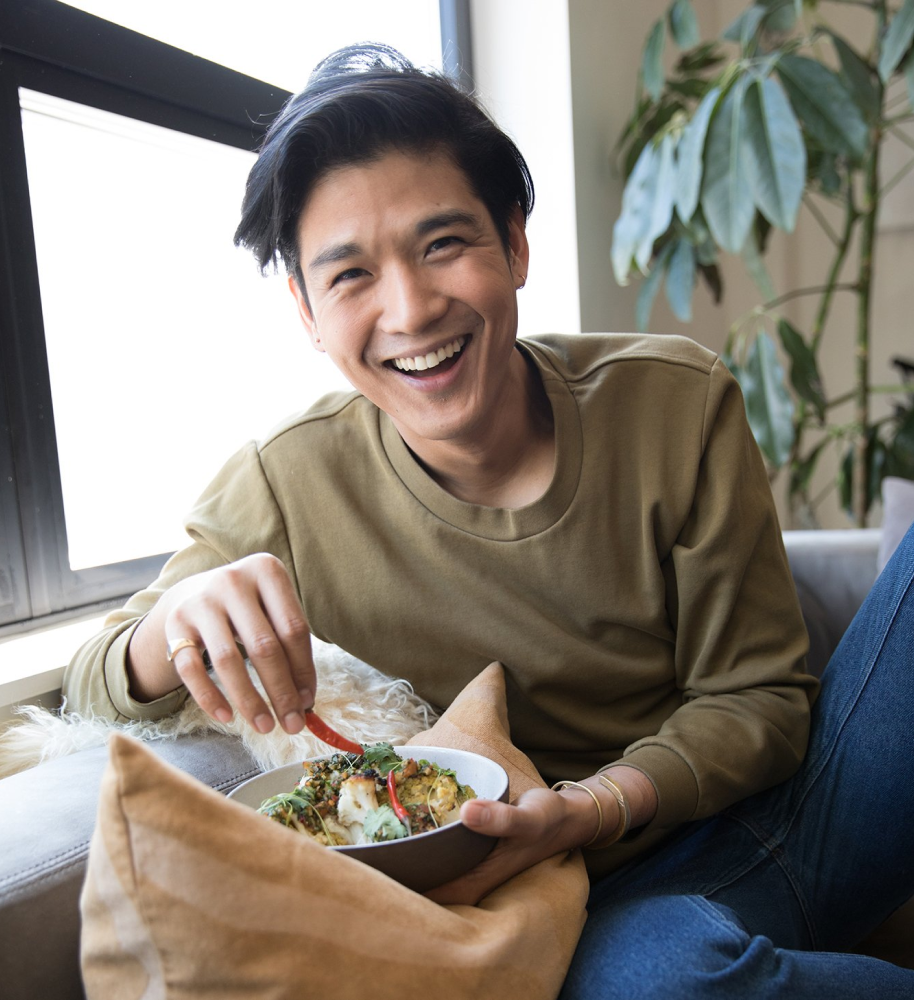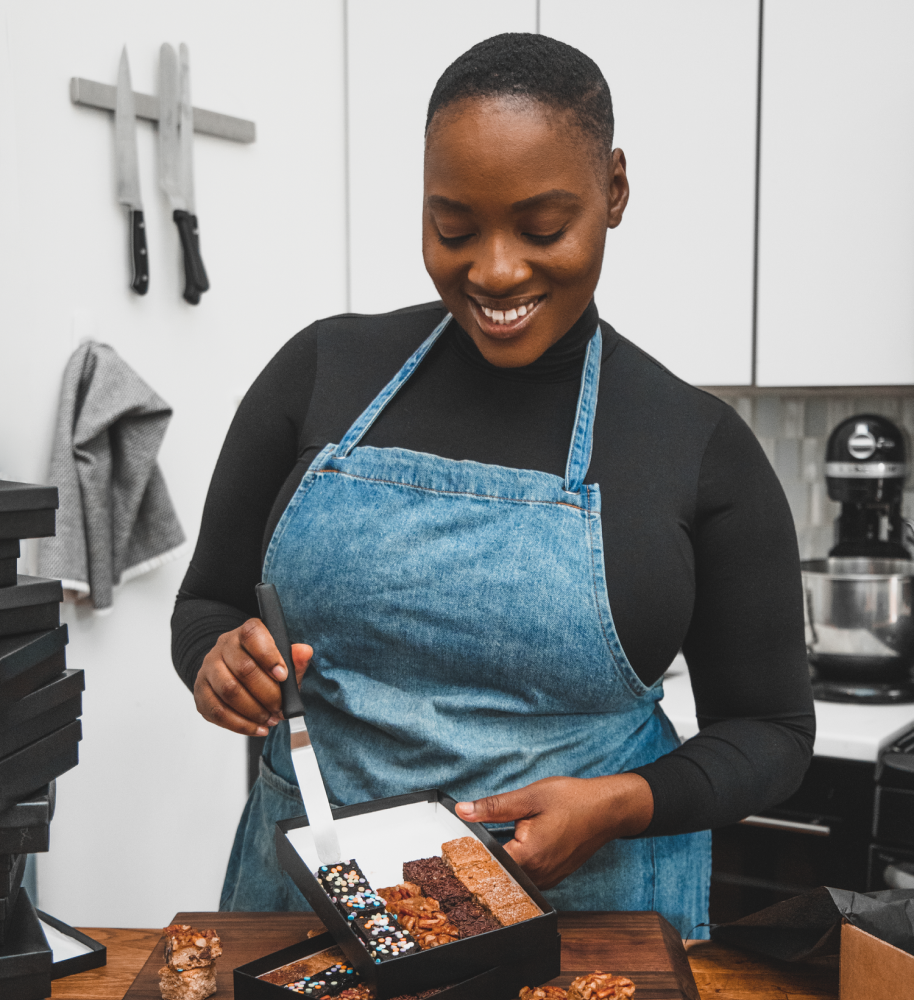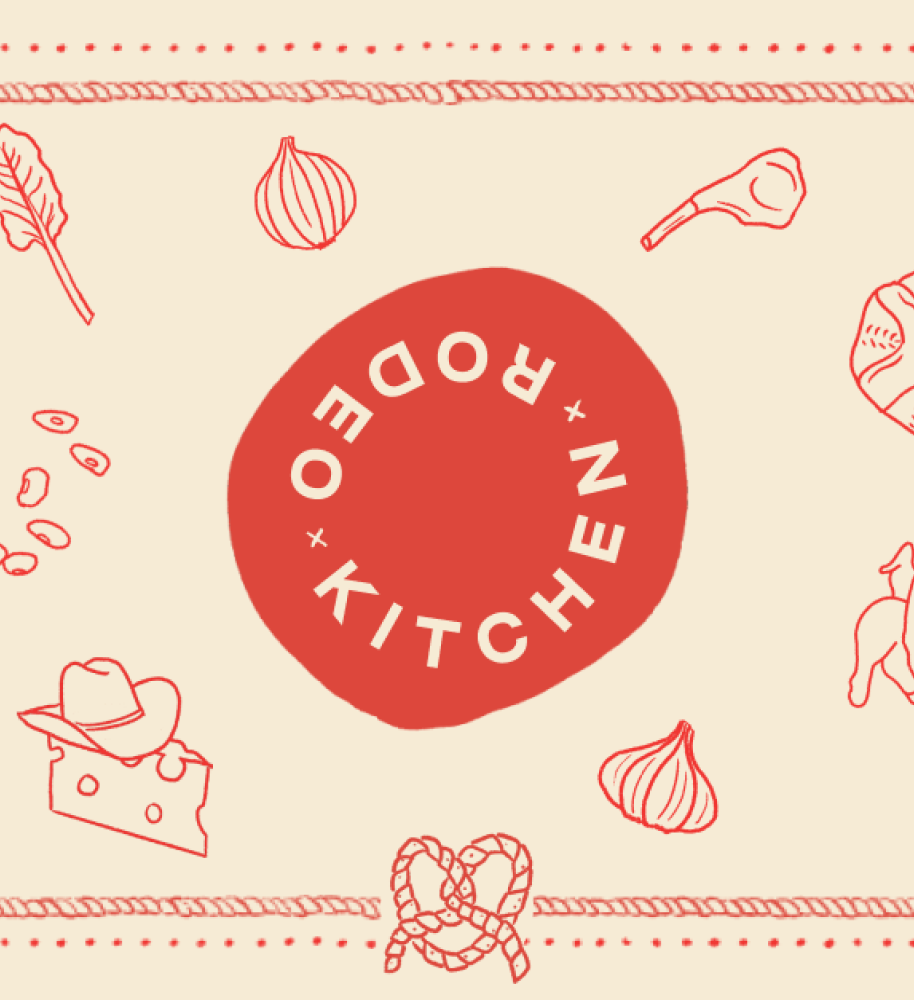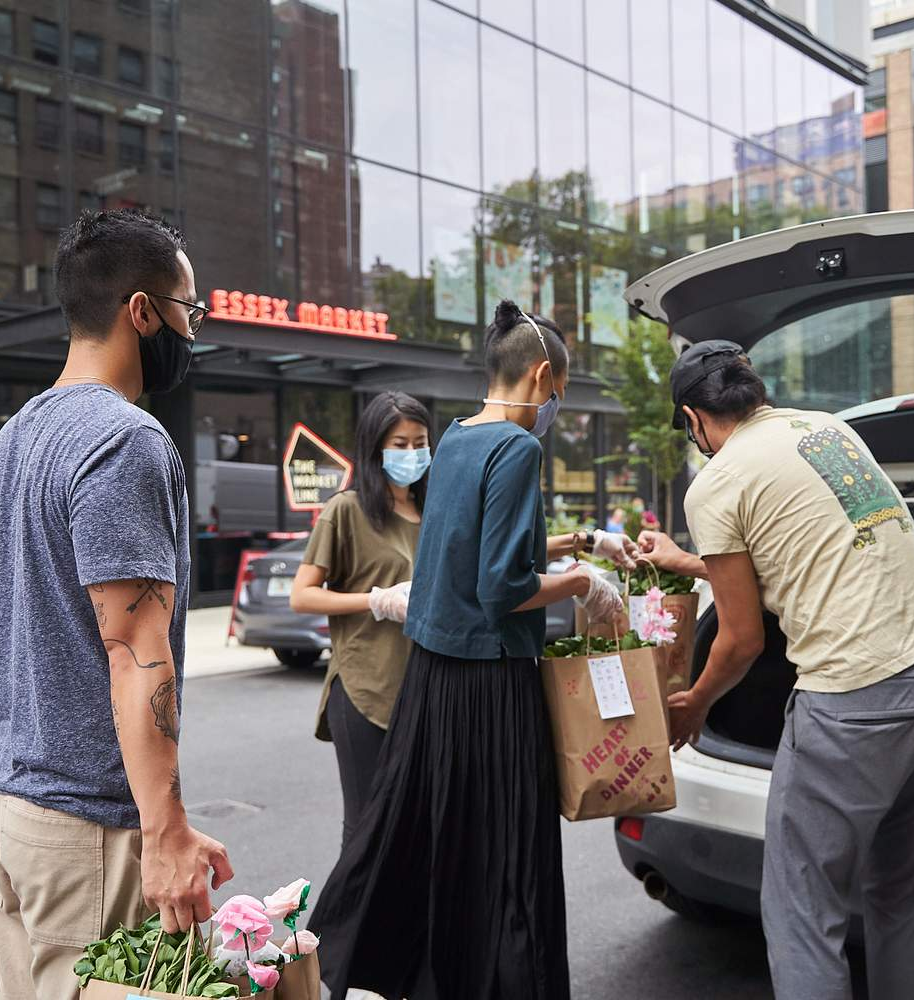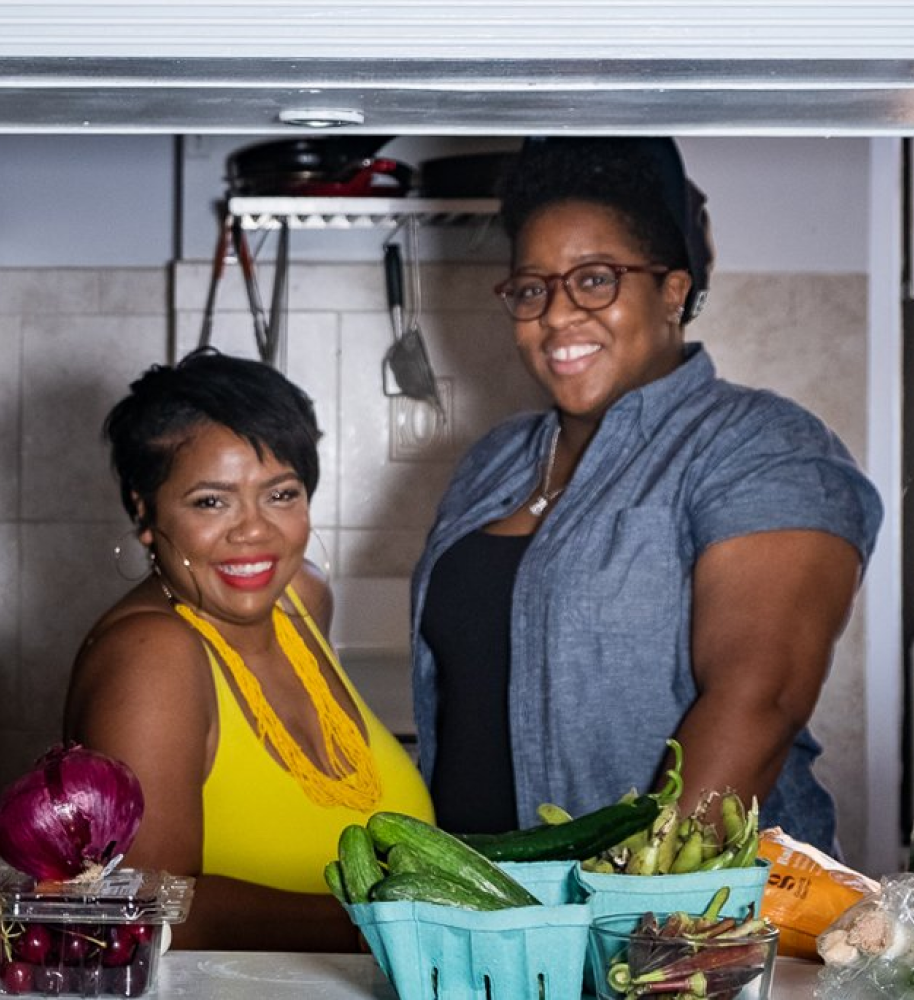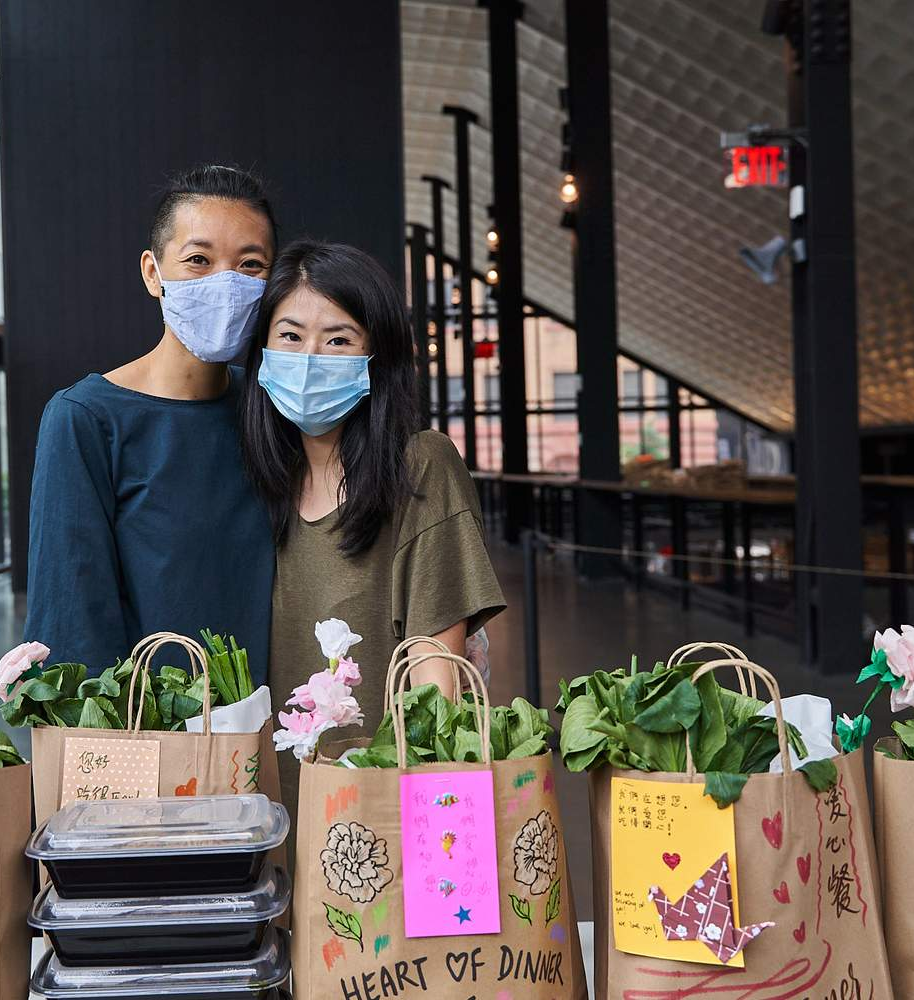This article is part of our Kinder Kitchens campaign. Each year, we invite you to join us in donating to an organization making a big difference in their community. For every discount you receive during our sitewide sale, you have the opportunity to donate a portion of your savings to One Love Community Fridge.

“Food is the foundation of our health, and everyone should have access not just to food, but healthy food that nourishes our bodies,” says One Love Community Fridge founder Asmeret Berhe-Lumax. It’s a sentiment that sounds simple, almost too obvious. But for a large swath of New York City’s population, food insecurity is a daily concern. According to the NYC Mayor’s Office of Food Policy, in 2022, an estimated 1.2 million (or 14.6% of) New York City residents were unsure where their next meal would come from.
During the COVID-19 pandemic, Asmeret began to see the many ways in which the status-quo systems for supplying, feeding, and supporting hungry New Yorkers were failing those who needed it most. She recalls thinking about all the crops being destroyed, all the restaurants closing, all the food going to waste while people in her city were hungry. Called to do more than watch the systems fail, Asmeret started One Love Community Fridge, an organization whose mission is to connect, engage, and empower communities through education about and access to healthy food.

Today, four years after the project began, One Love Community Fridge has eight fridges of its own and regularly helps stock over 30 across New York City. Last year alone, they moved over 2.3 million pounds of food.

Today, four years after the project began, One Love Community Fridge has eight fridges of its own and regularly helps stock over 30 across New York City. They’ve expanded beyond the East Coast and have started to set up fridges in Seattle, WA, too. Last year alone, they moved over 2.3 million pounds of food.
Early on, Asmeret made it a priority to engage committed partners across various parts of the food and restaurant industries. These collaborators are one of the main reasons the fridges remain filled. One Love works with many small Brooklyn restaurants, like Colonie and Gran Electrica, who are looking to redirect excess food and ingredients that would otherwise end up in the trash. Early on, they collaborated with large food preparation services like Sakara, and now work with some major food distributors, such as Katzman, who contribute large quantities of ingredients that get distributed across the fridges. They also work with individual chefs looking for places to direct unused ingredients. “Everyone was so willing to help us,” Asmeret says.
Now mostly “volunteer-powered,” the organization relies on individuals to help pack and distribute the food. They have volunteers who bring food across neighborhoods by foot, and others who help redistribute across the city with cars and bikes.
Although a large part of One Love’s core function is getting food to fridges and into the mouths of those who need it, they’ve also set up other core pillars that help them transform how people experience and understand food. Knowing that habits are formed early, One Love works within schools to educate and engage kids and teens. They host speakers, give presentations, and invite kids to help pack food for community fridges, all to teach them about healthy food choices. One Love isn’t pushing any specific diet or idea of “wellness.” Instead, the goal is to help kids understand from an early age which foods make them feel good. Asmeret says they’re trying to break the concept of “healthy eating” and nutrition into small actionable steps that can be incorporated into these children’s everyday lives.



In addition to school programming and engagements, they work with chefs to host cooking classes that teach individuals how to use the ingredients in the fridge. For those who may not have access to a kitchen or time to prepare meals, One Love engages chefs who supply and help stock ready-to-eat dishes.
This summer, they launched their CSA, a program that brings weekly fresh produce directly from farm partners to individuals in the community. In many ways, this program is emblematic of One Love as a whole — taking something that has become a luxury and making it available to everyone.
One of the most exciting parts of One Love Community Fridge is the emphasis they put on connection and collaboration, both with the communities they engage in and with those who grow and make food in this country. This summer, they launched their CSA, a program that brings weekly fresh produce directly from farm partners to individuals in the community. In many ways, this program is emblematic of One Love as a whole — taking something that has become a luxury and making it available to everyone.
It’s easy to spot a One Love Community Fridge. They’re all over the city, on street corners and sidewalks, sleek and eye-catching, but still somehow like they have always been part of the cityscape. That’s because integrity and respect are a key part of their mission. From the beginning, Asmeret has been focused on the power of design and the power of beauty as a way to help inspire those within the communities that house the fridges.
Furthermore, Asmeret notes, “the design aspect is very much tied to the respect part of it.” With One Love, Asmeret is working to remove the stigma attached to using these public fridges. Their focus on quality food partners is one way they do this; another is by making them beautiful and functional contributions to the city streets — something you are happy to hang around and have down the street. They even created a fridge that is actually “alive” and “growing” by planting an edible garden on top of the appliance. With the help of a volunteer gardening group, fridges will not only have food inside of them but grow edible additions as well.

Her advice to anyone interested in helping the cause: Start local. Figure out what the needs are close to home and what people are interested in receiving. For these fridges to survive, the onus and support must be from within the community.

One Love is proof that the best way to help in the fight against hunger is to know, on an individual level, the people you’re helping. Her advice to anyone interested in helping the cause: Start local. Figure out what the needs are close to home and what people are interested in receiving. For these fridges to survive, the onus and support must be from within the community.
To anyone who wants to set up a fridge? “Just do it,” Asmeret says. It might feel daunting, but starting small and close to home is the first step for larger, systemic change. “It will make a huge difference, both in your life and somebody else's life,” Asmeret notes. “What we see again and again is people take that first step, then another one, and another one, and that builds up.”
